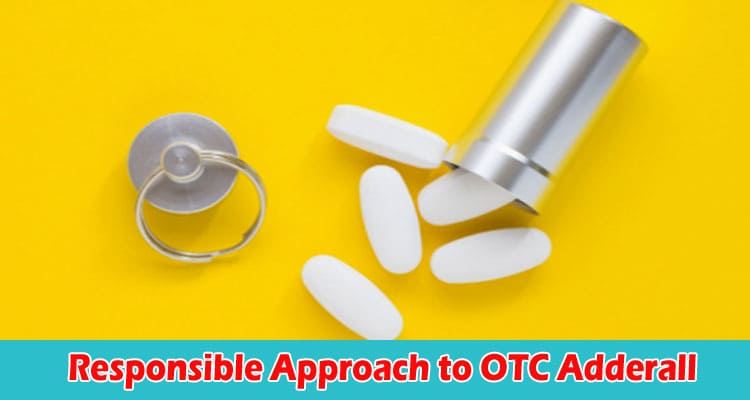In recent years, the rise of over-the-counter (OTC) medications has offered individuals unprecedented access to various treatments and remedies. However, amidst this convenience, one particular substance stands out for its potential risks and consequences: OTC Adderall. This stimulant, often used to manage attention deficit hyperactivity disorder (ADHD), has become increasingly available without a prescription, raising concerns about its misuse and the dangers associated with self-medication.
This article sheds light on the precautions when contemplating using OTC Adderall. It emphasises the crucial role of consulting a healthcare provider to ensure informed decision-making, responsible usage, and the well-being of individuals considering this route. By understanding the potential risks and seeking expert advice, one can make informed choices regarding their health and avoid potentially harmful consequences associated with self-administration of OTC Adderall.
Understanding Adderall
Before exploring the precautions surrounding OTC Adderall, it is vital to clearly understand what this medication entails. It’s a central nervous system stimulant that combines amphetamine and dextroamphetamine. It is primarily prescribed to individuals diagnosed with ADHD to help improve focus, attention, and impulse control.
The Appeal of OTC Adderall
The appeal of OTC Adderall lies in its perceived accessibility and convenience. Individuals seeking to enhance their cognitive performance, manage work or academic pressure, or even lose weight may be tempted to bypass traditional healthcare channels and obtain the drug directly from over-the-counter sources. However, this approach carries significant risks and potential dangers that should be considered.
Precautions to be Taken
- Consult a Healthcare Professional:
Perhaps the most crucial precaution when considering OTC Adderall is to consult with a qualified healthcare professional. A doctor or psychiatrist possesses the necessary expertise to evaluate an individual’s specific needs, medical history, and potential risks associated with Adderall usage. They can provide guidance tailored to each individual’s unique circumstances and recommend appropriate alternatives or treatments.
- Understand the Risks and Side Effects:
Adderall, even when used as prescribed, can have various side effects, including increased heart rate, elevated blood pressure, insomnia, loss of appetite, and mood swings. The misuse or improper dosage of OTC Adderall can amplify these risks and lead to more severe complications. It is crucial to educate oneself about these side effects and weigh them against the desired benefits before considering OTC Adderall.
- Assess Underlying Health Conditions:
Certain pre-existing health conditions, such as cardiovascular problems, high blood pressure, anxiety disorders, or a history of substance abuse, may increase the risks associated with OTC Adderall use. A thorough evaluation of one’s medical history and overall health is essential to determine whether Adderall is a suitable option or if alternative treatments should be explored.
- Consider Non-Pharmacological Approaches:
Exploring non-pharmacological alternatives can often provide effective solutions for managing attention-related challenges. Cognitive behavioural therapy, lifestyle modifications, stress management techniques, and organisational strategies are just a few examples of non-medical approaches that can complement or, in some cases, replace the need for medication.
- Beware of Counterfeit Products and Online Sources:
The availability of OTC Adderall from unregulated sources, including online platforms, raises concerns about product quality, authenticity, and dosage consistency. Counterfeit medications can be dangerous and ineffective, posing significant health risks. It is essential to exercise caution and only obtain medications from reputable sources with proper certifications.
Conclusion
In conclusion, the availability of over-the-counter (OTC) Adderall presents a complex and potentially risky proposition. While the convenience of accessing this stimulant without a prescription may be alluring to some, it is vital to approach OTC Adderall with caution and prioritise the necessary precautions. Consulting a qualified healthcare professional is crucial in responsibly navigating this landscape.
Individuals can benefit from their expertise by engaging with a healthcare provider and thoroughly understanding the potential risks and benefits associated with Adderall usage. These professionals can assess an individual’s medical history, underlying health conditions, and unique circumstances to determine whether OTC Adderall is a suitable option or if alternative treatments should be explored.
Furthermore, being aware of the risks and side effects of Adderall is essential for informed decision-making. Recognising the potential cardiovascular, psychological, and physiological implications of Adderall misuse or improper dosage is crucial in safeguarding one’s health and well-being. Education and awareness can help individuals weigh the benefits against the risks and make responsible choices.
Additionally, considering non-pharmacological approaches to managing attention-related challenges is highly recommended. Cognitive behavioural therapy, lifestyle modifications, stress management techniques, and organisational strategies can often be effective alternatives or complementary measures to medication. Exploring these options with the guidance of a healthcare professional can lead to more holistic and tailored solutions.
Exercise caution when obtaining medications, especially from online sources, is also essential. Counterfeit products and unregulated platforms can pose significant health risks due to poor quality, lack of authenticity, and inconsistent dosages. Acquiring medications from reputable sources with proper certifications is crucial to ensure safety and effectiveness.
By embracing these precautions and seeking professional guidance, individuals can make informed choices regarding their cognitive and behavioural needs while mitigating potential risks. Prioritising responsible decision-making and overall well-being is essential in navigating the world of OTC Adderall and ensuring the best possible outcomes for individuals seeking assistance with attention-related challenges.







